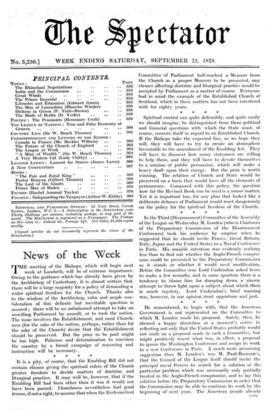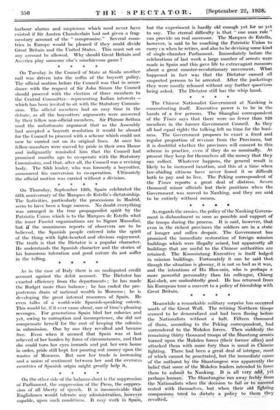He remembered, to begin with, that the American Government is
not represented on the Committee to which M. Louden made his proposal. Surely, then, he showed a happy discretion at a moment's notice in reflecting not only that the United States probably would not smile on a proposal made in such a Committee, but might positively resent what was, in effect, a proposal to ignore the Washington Conference and assign its work to a new Conference in Paris. A much more promising suggestion than M. Louden's was M. Paul-Boncour's, that the Council of the League itself should invite the principal naval Powers to search for a solution of the particular problem which was necessarily only partially treated in the Anglo-French compromise, and to lay this solution before the Preparatory Commission in order that the Commission may be able to continue its work by the beginning of next year. The American people already harbour alarms and suspicions which need never have existed if Sir Austen Chamberlain had not given a frag- mentary account of the "compromise." Several coun- tries in Europe would be pleased if they could divide Great Britain and the United States. This must not on any account be allowed. Why should Great Britain and America play someone else's mischievous game ?
* * * *







































 Previous page
Previous page